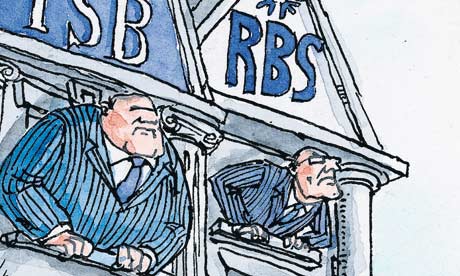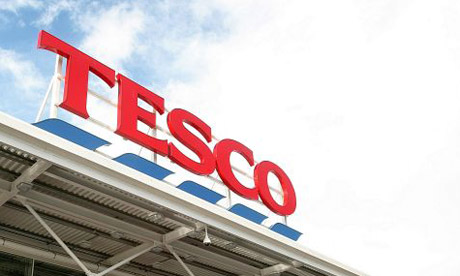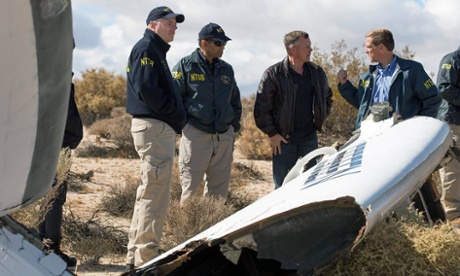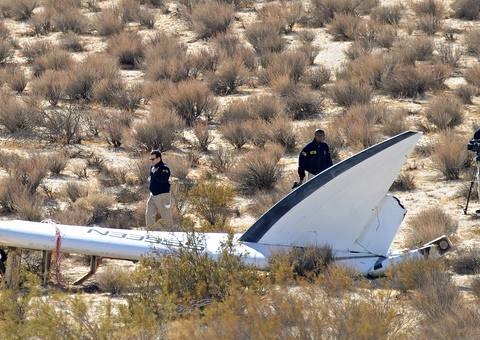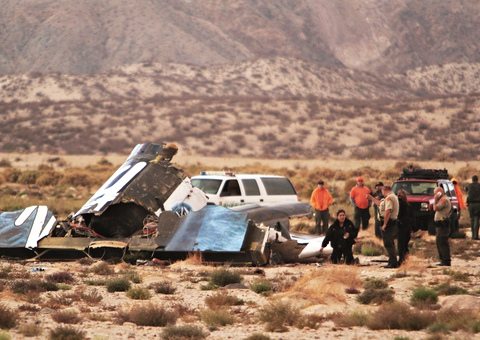He mixed it up with the music industry in the 1980s, battled British Airways in the 1990s and caused some crackles on the mobile phone airwaves in the noughties. Now Sir Richard Branson wants to plunge into high-street banking. Could the bearded pullover be just the man to transform the deeply unpopular financial sector?
Branson's Virgin Money is preparing a bid for the 600 branches put up for sale by Lloyds Banking Group, which is being forcibly shrunk by regulators who are worried about its 30% market share in personal banking. The outlets, which are a mixture of Cheltenham & Gloucester and Lloyds branches, are more than just bricks and mortar – they come complete with account holders, mortgage loans and customers. It's a ready-made national bank, and ready for a buyer.
Virgin Money has raised £100m from a US billionaire, Wilbur Ross, who has indicated a willingness to raise this to £500m. A player in financial services since 1995, Virgin already provides mortgages, credit cards, pensions or savings accounts to three million people, although it operates purely online and by phone, and it only got a full banking licence last year.
It can be tricky to work out whether Branson is serious about something (the jury is out on his efforts to kickstart space tourism) but the entrepreneur clearly smells profit in breaking into Britain's high-street banking oligopoly. Virgin is also trying to buy Northern Rock's 76 branches and reckons it will open 70 outlets of its own, "organically", over the next five years. So prepare for an invasion by that familiar red logo.
A heavyweight new national banking entrant is well overdue. Since the global financial crisis shattered balance sheets three years ago, there have been 14 mergers in the banking industry. National players including Alliance & Leicester, Bradford & Bingley and HBOS have been swallowed. The remaining big five – Lloyds, RBS, Barclays, HSBC and Santander – control 85% of current accounts. Four of them (excluding Santander) provide 78% of business accounts. This can't be healthy. With good reason, there have been 20 regulatory inquiries into competition in the banking industry in the last 11 years.
Consumer experts say the narrow range of players means uniformly poor customer service: punitive fees on unauthorised overdrafts, puny returns on Isas, inflexibly packaged accounts and a lemming-like rush to mis-sell payment protection insurance. Yet in a peculiar psychological oddity, customers rarely flee. The rate of "switching" between banks is barely 7%, as the public believe, wrongly, that it's a complicated process. Sarah Brooks, head of financial services at Consumer Focus, believes Virgin Money could be welcome – if Branson can deliver a new approach.
"We'd welcome all new competition into the market," she says. "But unless they're going to have a different model, consumers won't necessarily have a different choice."
The signs are good. Branson has a history of innovation: Virgin Atlantic shattered airline assumptions about networks and connections, showing that a point-to-point carrier could prosper. Virgin Mobile proved a telecoms operator could be a "virtual" operation renting capacity from other networks. Virgin Megastores were pioneers in destination shopping – selling and entertaining under one roof. Although let's not forget he's had his share of turkeys (think Virgin Cola and early-era Virgin trains).
Branson's advisers are talking, vaguely at this stage, about recreating a relationship between bank managers and customers, with local branches getting more leeway to cater for local needs. Virgin Money wants to kick off its cosy image-making by opening four coffee lounges in London, Edinburgh, Manchester and Norwich where shoppers can relax without getting a hard sell.
It's promising. And Virgin isn't the only new kid on the block. Two new entrants, Aldermore and Metro Bank, have popped up, promising plain "vanilla" deposits and loans without any toxic dabbling on the capital markets. One contentious issue for these entrants is "free" banking – the fee-free structure of UK bank accounts which, critics argue, is both a barrier to entry and a fallacy, with savers paying through paltry interest rates.
You'd have thought the near-death experience of the global financial meltdown would have led to permanent change in banking. But it's been depressing to see how the industry has emerged from the crisis – with a tightening in lending to small businesses and first-time homebuyers, yet ever-present bonuses for senior executives.
Branson has his faults. But it's a timely moment for Britain's best-known businessman to land his balloon outside Barclays, HSBC and Lloyds.
Turning Guinness into pure gold
Could a marketing man have scripted it better? Barack Obama walked into an Irish pub, greeted his seven distant cousins and lifted a pint of Guinness. Given Obama's popularity across Europe, this was a photo opp worth many times its weight in gold for Guinness's producer, Diageo.
Kantar Media calculated that footage of the president enjoying his stout delivered £20m of free advertising to Guinness. It's come at a welcome time – volume sales fell 6% in Ireland last year and were down 3% globally. Jobs are at risk at the company's breweries. The black stuff, best served on draught, has lost its appeal as recession-hit British and Irish drinkers stay away from the pub.
Krista Thomas of Ad.ly, a firm specialising in celebrity endorsements, says the leader of the free world enjoying your product is a "priceless" boost – the perfect spark to be fanned by the likes of Twitter. Perhaps Guinness could work out how to draw Obama's profile in the foamy head of a pint.
Private equity's poor handiwork
The rise and fall of the DIY chain Focus would make a fine case study for MBA students in the good and bad of debt-backed finance.
Between them, a clutch of private equity firms transformed Focus from a modest Midlands operation into a nationwide player that, at its peak, was the second biggest in the market. Yet these funds – notably Apax Partners and Duke Street – were ruthless in extracting every drop of possible return, squeezing £1bn out of the business in a decade.
Private equity isn't all bad – there are plenty of cases where buyout merchants have taken struggling public companies and reshaped them successfully out of the gaze of the stock market. But the buyout boom in the middle of the last decade went far out of control – and the long-term downsides for our economy are only gradually coming to light.
